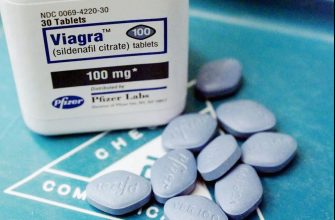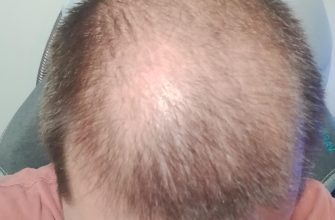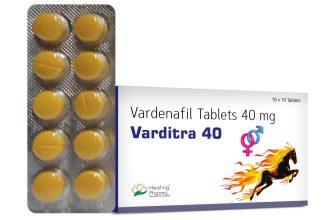Claritin 20mg is a common dosage for adults experiencing allergy symptoms. This strength provides effective relief from sneezing, runny nose, itchy eyes, and other common allergy reactions. Remember to always check the label for specific instructions and consult your doctor or pharmacist before starting any new medication, especially if you have pre-existing health conditions.
Taking Claritin 20mg once daily is generally sufficient for most adults. However, individual responses vary. If your symptoms persist despite taking the recommended dose, consult a healthcare professional for advice on adjusting your treatment plan. They can assess your specific needs and recommend the best course of action.
Important considerations: Avoid alcohol while taking Claritin, as this can increase the risk of drowsiness. Also, be aware that Claritin 20mg may cause drowsiness in some individuals; avoid operating heavy machinery or driving if you experience this side effect. If you experience any unexpected or severe side effects, stop taking the medication and seek medical advice immediately.
This information is for guidance only and does not replace professional medical advice. Always consult a healthcare professional for personalized recommendations regarding medication use.
- Claritin 20mg: A Detailed Guide
- Understanding Loratadine’s Action
- Dosage and Administration
- Possible Side Effects
- Interactions and Precautions
- Claritin 20mg Dosage for Adults and Children
- Common Side Effects of Claritin 20mg
- Less Common Side Effects
- Claritin 20mg Interactions with Other Medications and Substances
- When to Consult a Doctor Regarding Claritin 20mg
- Persistent or Worsening Symptoms
- Interactions with Other Medications
- Underlying Health Conditions
- Pregnancy and Breastfeeding
- Unusual Side Effects
- Children and Dosage
Claritin 20mg: A Detailed Guide
Claritin 20mg tablets contain loratadine, an antihistamine effective for relieving allergy symptoms. One 20mg tablet provides 24-hour relief. Take one tablet daily, with or without food.
Understanding Loratadine’s Action
Loratadine works by blocking histamine, a chemical your body releases during an allergic reaction. This action reduces symptoms like sneezing, runny nose, itchy eyes, and hives. It’s non-drowsy, meaning it generally won’t make you feel sleepy. However, individual responses vary.
Dosage and Administration
The recommended dose is one 20mg tablet daily. For children under 12, consult a doctor before administering Claritin. Never exceed the recommended dose. If you miss a dose, take it as soon as you remember, unless it’s almost time for your next dose. Do not double the dose.
Possible Side Effects
While generally safe, some individuals might experience mild side effects like headache, drowsiness (though uncommon), or stomach upset. If these persist or worsen, stop taking Claritin and consult your doctor or pharmacist. Severe allergic reactions are rare, but seek immediate medical attention if you experience symptoms like swelling, difficulty breathing, or hives.
Interactions and Precautions
Inform your doctor or pharmacist about all medications you are taking, including over-the-counter drugs and herbal supplements. Claritin may interact with certain medications. Pregnant or breastfeeding women should consult their doctor before use. Individuals with liver or kidney problems should discuss use with their physician.
Claritin 20mg Dosage for Adults and Children
Adults 12 years and older should take one 20mg tablet once daily. Do not exceed this dose.
Claritin 20mg is not recommended for children under 12 years of age. For children under 12, use a pediatric formulation of loratadine specifically designed for their weight and age. Always follow the instructions on the child’s medication label.
If you have questions about the appropriate dose for a child, consult your pediatrician or pharmacist. They can recommend the correct dosage based on your child’s age and weight.
For adults, if symptoms persist for more than seven days, or worsen, consult a doctor.
Always read and follow the instructions included with your Claritin packaging. This information is for general guidance only and does not substitute for advice from a healthcare professional.
Common Side Effects of Claritin 20mg
While Claritin 20mg is generally well-tolerated, some people experience mild side effects. The most frequently reported include drowsiness, headache, and dry mouth. These are usually temporary and resolve on their own.
Less Common Side Effects
Less frequently, individuals may experience nausea, dizziness, or stomach upset. If any of these side effects bother you or persist, consult your doctor or pharmacist. They can advise on management strategies or explore alternative allergy treatments.
Rarely, more serious reactions occur. Seek immediate medical attention if you develop symptoms like difficulty breathing, swelling of your face, lips, or tongue, or a severe rash.
Claritin 20mg Interactions with Other Medications and Substances
Always inform your doctor or pharmacist about all medications, supplements, and herbal remedies you’re taking before starting Claritin 20mg. This includes prescription drugs, over-the-counter medications, and even vitamins.
Certain medications can affect how Claritin is processed in your body, potentially leading to increased side effects or reduced effectiveness. For example, combining Claritin with MAO inhibitors (used to treat depression) requires careful monitoring. Similarly, concurrent use with other antihistamines might cause excessive drowsiness.
Alcohol consumption can enhance the sedative effects of Claritin, so moderate your alcohol intake while using this medication. Grapefruit juice also interacts with some medications; check with your doctor or pharmacist if you consume it regularly.
| Medication Class | Potential Interaction | Precautions |
|---|---|---|
| MAO Inhibitors | Increased risk of side effects | Avoid concurrent use; consult your doctor. |
| Other Antihistamines | Increased drowsiness | Reduce dosage of either medication or use them at different times. |
| Sedatives/Hypnotics | Increased sedation | Monitor for excessive drowsiness and adjust dosages as needed. |
| Certain Antifungal Medications (e.g., ketoconazole) | Increased Claritin levels | Your doctor might adjust your Claritin dosage. |
This table provides examples and isn’t exhaustive. Always consult your healthcare provider or pharmacist before mixing Claritin 20mg with other substances to ensure your safety and the efficacy of your treatments.
When to Consult a Doctor Regarding Claritin 20mg
Contact your doctor immediately if you experience any severe allergic reactions after taking Claritin 20mg. This includes difficulty breathing, swelling of your face, lips, tongue, or throat, or a severe skin reaction.
Persistent or Worsening Symptoms
Consult your physician if your allergy symptoms don’t improve after a few days of using Claritin 20mg, or if they worsen. This suggests the medication may not be appropriate for your specific allergy or a more serious condition may be present.
- Prolonged sneezing
- Uncontrollable itching
- Severe congestion
- Persistent rash
Interactions with Other Medications
Inform your doctor about all medications, supplements, and herbal remedies you’re taking before starting Claritin 20mg. This is especially important for blood thinners, heart medications, and other allergy drugs. Claritin may interact with these, affecting their efficacy or causing adverse effects.
Underlying Health Conditions
- High blood pressure
- Liver or kidney disease
- Glaucoma
- Prostate enlargement
If you have any of these conditions, discuss Claritin 20mg use with your doctor beforehand. They can assess potential risks and recommend alternative treatments if necessary.
Pregnancy and Breastfeeding
Always consult your doctor before taking Claritin 20mg if you are pregnant, breastfeeding, or planning to become pregnant. The medication’s safety during these periods needs individual assessment.
Unusual Side Effects
Seek medical attention if you develop any unusual side effects, even if they seem minor. These can include, but are not limited to, drowsiness, headache, nausea, or dizziness. Your doctor can determine if these symptoms are related to the medication and offer solutions.
Children and Dosage
Never give Claritin 20mg to a child without consulting your pediatrician. Children require different dosages based on their weight and age. Incorrect dosage can lead to undesirable consequences.










